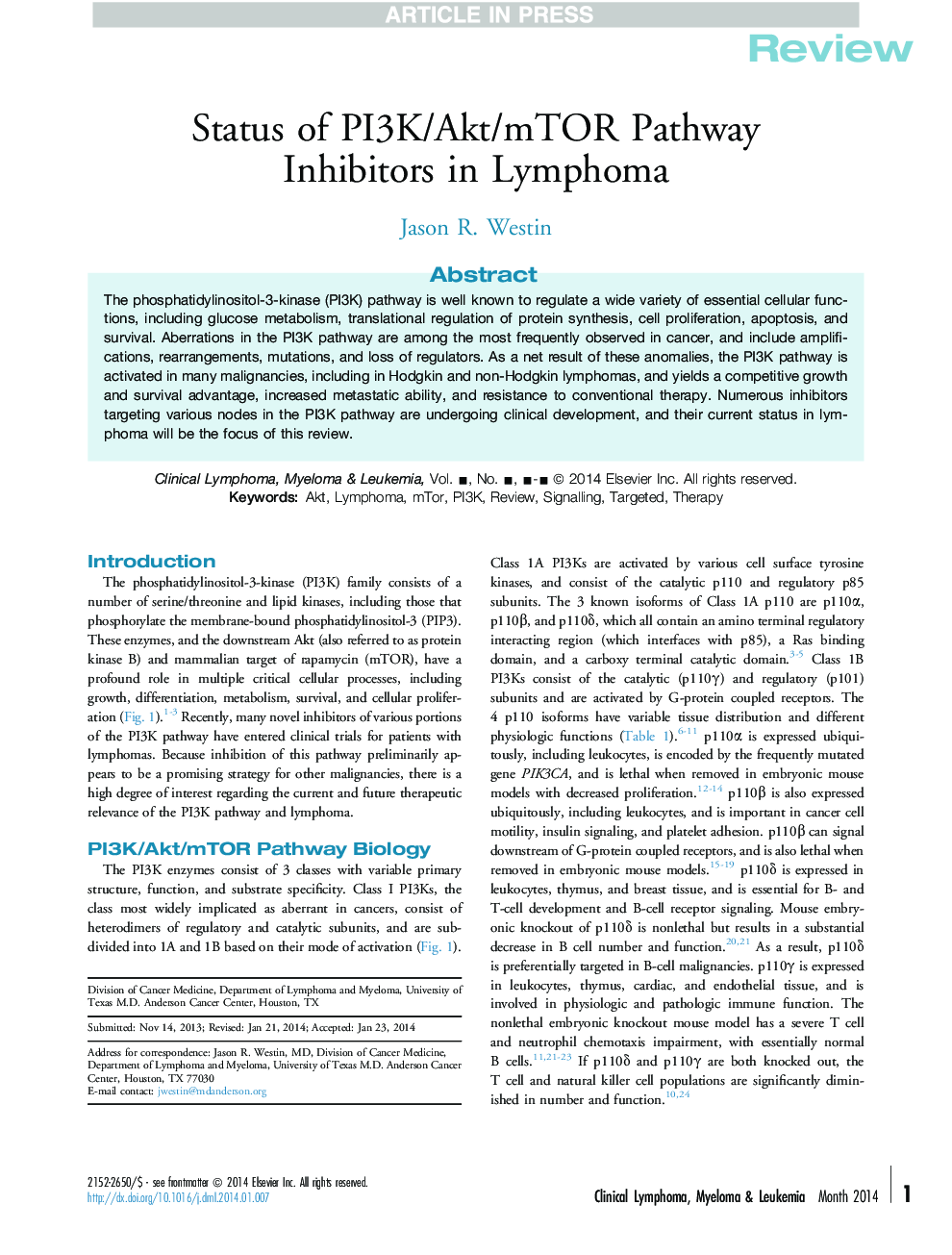| Article ID | Journal | Published Year | Pages | File Type |
|---|---|---|---|---|
| 5882924 | Clinical Lymphoma Myeloma and Leukemia | 2014 | 8 Pages |
Abstract
The phosphatidylinositol-3-kinase (PI3K) pathway is well known to regulate a wide variety of essential cellular functions, including glucose metabolism, translational regulation of protein synthesis, cell proliferation, apoptosis, and survival. Aberrations in the PI3K pathway are among the most frequently observed in cancer, and include amplifications, rearrangements, mutations, and loss of regulators. As a net result of these anomalies, the PI3K pathway is activated in many malignancies, including in Hodgkin and non-Hodgkin lymphomas, and yields a competitive growth and survival advantage, increased metastatic ability, and resistance to conventional therapy. Numerous inhibitors targeting various nodes in the PI3K pathway are undergoing clinical development, and their current status in lymphoma will be the focus of this review.
Related Topics
Health Sciences
Medicine and Dentistry
Anesthesiology and Pain Medicine
Authors
Jason R. Westin,
